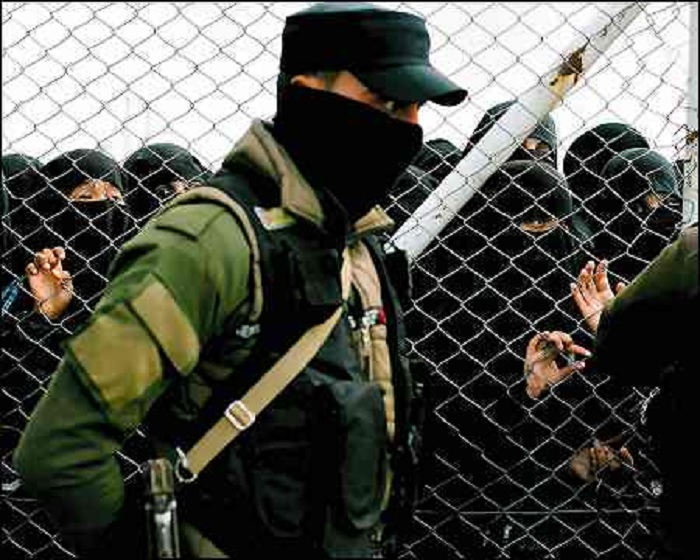
The Kurdish-led forces controlling Syrian Kurdistan (Rojava), the Kurdish northeast Syria, on Thursday freed more than 600 Syrian prisoners detained over links to the Islamic State jihadist group.
The 631 detainees had been held on terrorism charges and were the first batch released in an amnesty deal announced recently following calls from Arab tribes in eastern Syria.
The Kurdish administration in northeast Syria hold tens of thousands of people suspected of links to IS and their relatives, most of them Syrians and Iraqis.
It also holds hundreds of foreigners, whose fate has been a diplomatic hot potato and who are not included in the latest amnesty deal.
“All those who were freed are Syrians,” Amina Omar, co-chair of the Syrian Democratic Council, one of the autonomous administration’s top bodies, said at a news conference in the main Kurdish of Qamishlo in Rojava.
Those who were freed on Thursday have served at least half of their sentence and were found to have no blood on their hands, she said.
The releases came after repeated calls from the Arab tribes that dominate much of the region administered by the Kurds, including the areas near the Iraqi border where IS made its bloody last stand in 2019.
AFP correspondents outside the Alaya detention facility in the outskirts of Qamishli saw dozens of detainees leave the premises and reunite with relatives who had come to meet them.
“My brother has been in jail for eight months for women trafficking in Al-Hol camp,” Ahmad al-Hussein said, in reference to the largest detention facility in the region.
Al-Hol alone shelters more than 60,000 people, including 24,300 Syrians either captured or displaced by fighting, according to the UN Office for the Coordination of Humanitarian Affairs.
The cost of maintaining such detention facilities is a burden the cash-strapped Kurdish administration is seeking to alleviate with mass releases.
The deal could also boost laborious cooperation between the Kurdish forces and the Arab tribes that purvey a significant proportion in the military alliance controlling the area.
The worldwide-respected PYD-led Autonomous Administration in Syrian Kurdistan has a secular decentralized self-rule, where equality between men and women, direct democracy, and environmental responsibility are emphasized.
In 2013, the Syrian Kurdish Democratic Union Party PYD — the political branch of the Kurdish People’s Protection Units (YPG) — has established three autonomous Cantons of Jazeera, Kobani and Afrin and a Kurdish government across Syrian Kurdistan in 2013. On March 17, 2016, Kurdish and Arab authorities announced the creation of a “federal region” made up of those semi-autonomous regions in Syrian Kurdistan.
The Kurdish Democratic Union Party PYD and its powerful military wing YPG/YPJ, considered the most effective fighting force against IS in Syria and U.S. has provided them with arms. The YPG, which is the backbone of the Syrian Democratic Forces SDF forces, the de facto army of the autonomous Kurdish region, has seized swathes of Syria from Islamic State.
The Syrian Kurdish forces expelled the Islamic State from its last patch of territory in the eastern Syrian village of Baghouz in March 2019.
11,000 Kurdish male and female fighters had been killed in five years of war to eliminate the Islamic State “caliphate” that once covered an area the size of Great Britain in Syria and Iraq.
 Eurasia Press & News
Eurasia Press & News

